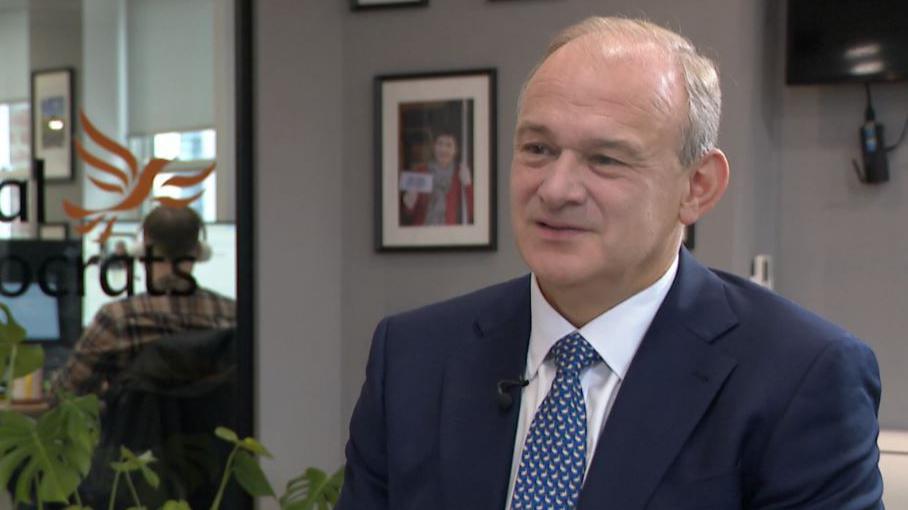Tories assess party's future after election losses
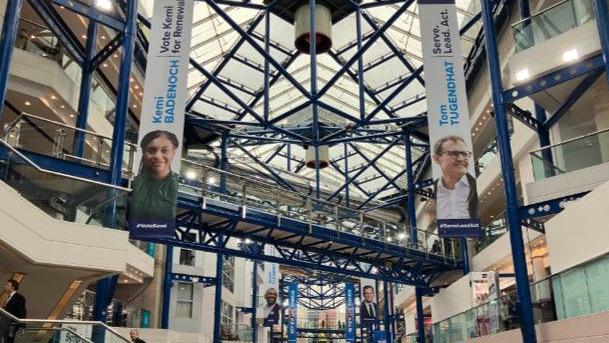
Three months ago the Conservative Party had its worst election defeat in its history
- Published
The general election saw a catastrophic set of results for the Conservatives in the South East.
At their autumn conference, MPs and activists have been reflecting on what went wrong and where they go from here.
The party lost 26 seats in Kent, Sussex and Surrey in July.
That is nearly 60% of a region that has long been considered safe territory for the party.
Instead, voters turned to the Liberal Democrats in places like Guildford, Horsham, Tunbridge Wells and Mid Sussex.
Meanwhile, Labour picked up seats across East Kent and Medway, partly helped by thousands of traditionally Tory supporters turning to Reform UK.
Although many at the conference expected their first big gathering since the election to be more than a little gloomy, they are buoyed by the recent challenges the Labour government have encountered, including the row over freebies and the winter fuel payment.
The resignation of Canterbury MP Rosie Duffield from Labour on the eve of the conference certainly helped lift spirits.
But the fact remains that three months ago the Conservative Party had its worst election defeat in its parliamentary history.
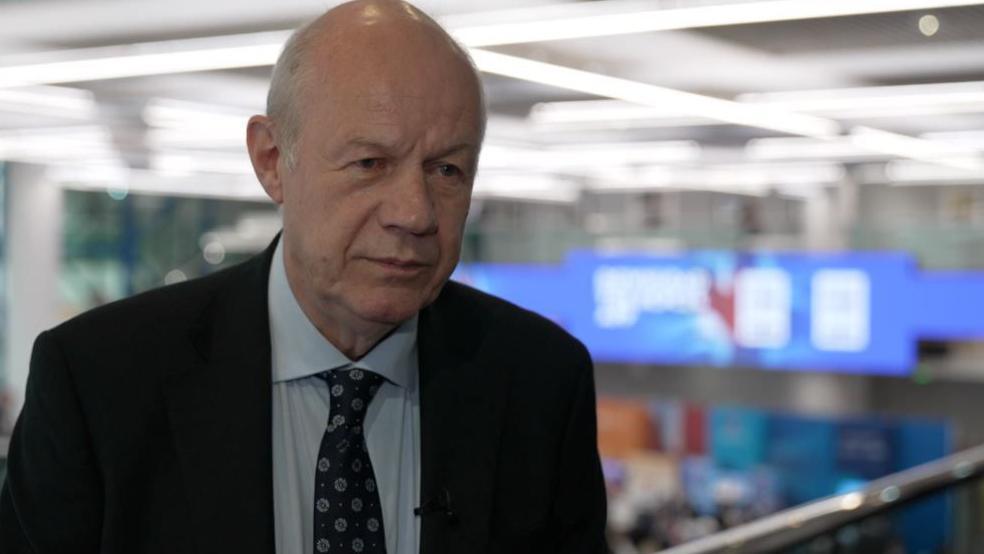
Damian Green said the party "lost the trust of the public"
Emblazoned on banners around the conference hall is the slogan “Review and Rebuild”.
So let’s start with Review. What went wrong?
“I think we lost the trust of the public big time,” says Damian Green, who lost his seat after 27 years as the Ashford MP.
“Both in terms of the sleaze issue… and also on competence.
"And if people think ‘well this lot are not competent and we don’t think they’re particularly nice’ then people won’t vote for us.”
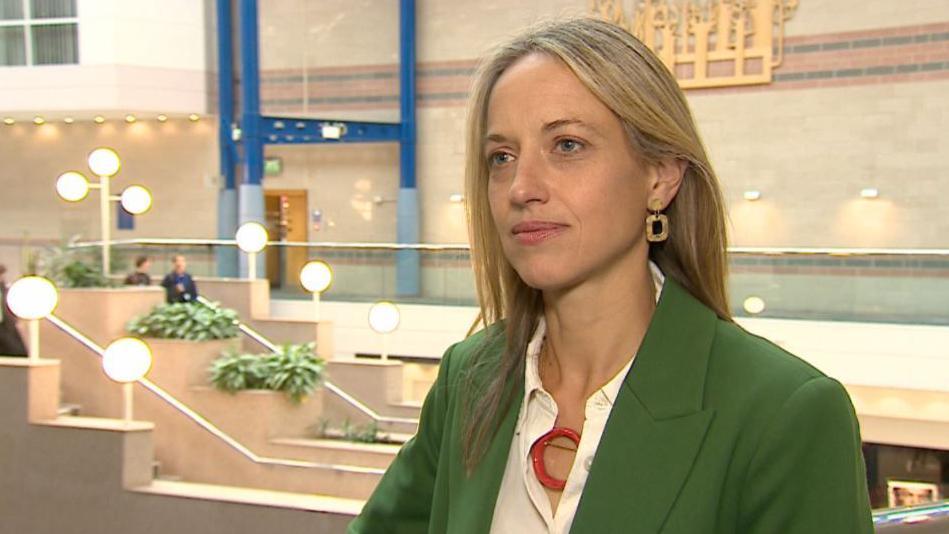
Faversham and Mid Kent MP Helen Whately said party members had "difficulties getting on with each other"
Faversham and Mid Kent MP Helen Whately cites “difficulties with getting on with each other".
“A lot of people on the door[steps] told me ‘you guys have been arguing amongst yourselves’.”
Mims Davies, MP for East Grinstead and Uckfield, agrees, blaming “infighting and looking like we didn’t care about our voters.”
“It just felt like we hadn’t really connected with people over those last couple of years.”
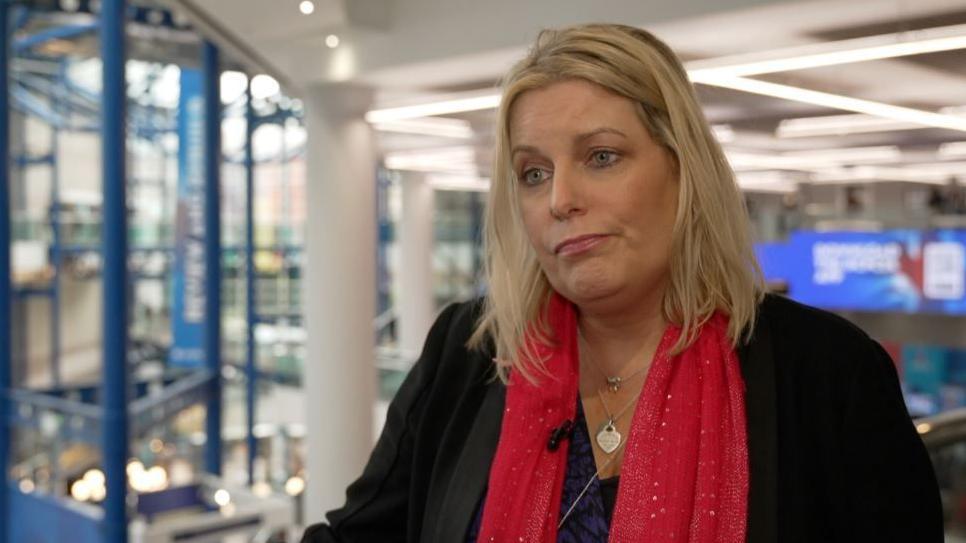
Mims Davies said she felt the party "hadn't really connected with people" over the last couple of years
Next: Rebuild. How do they reconnect with those voters?
“First and foremost, we have to think about the economy,” says Ms Whately.
“We have to make sure that we have a plan for economic growth. We do have to tackle climate change… but do that in a way that is affordable.
“And there’s no question that immigration is a big topic.
"It came up a lot on the doorstep. It’s one for which I don’t think there are easy answers.
"But we absolutely have to talk about it and recognise people’s unhappiness.”
Immigration was the central focus of the Reform UK campaign.
The right-leaning party was uncompromising on its messaging around tackling the small boat Channel crossings.
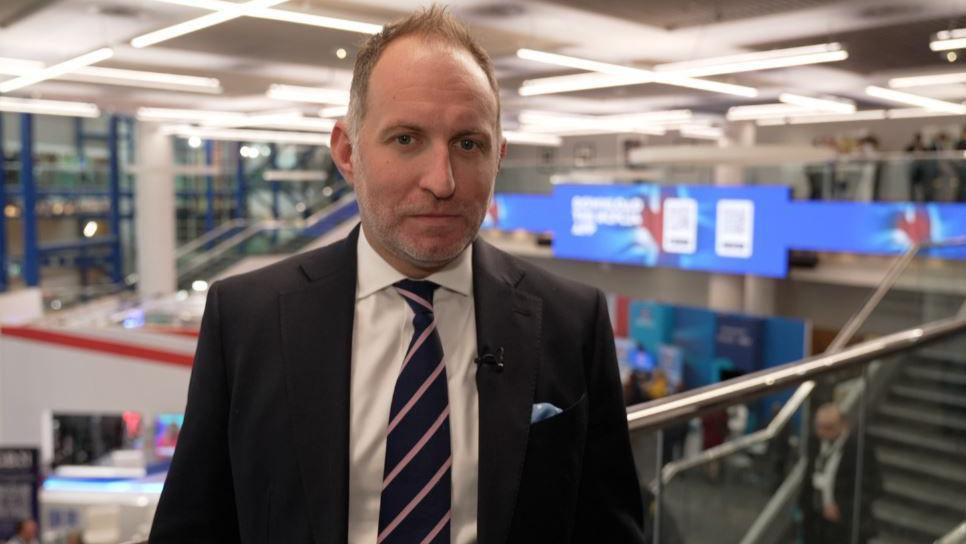
Stephen James was pushed into third place by Reform
Conservative candidate for Dover Stephen James was pushed into third place by Reform.
He says: “A lot of the Reform voters are small c conservatives and they are part of our centre-right family.
"To say they haven’t got any great ideas is silly and we should be looking at their ideas and going 'well that appealed to loads of people in the British public, let’s steal that idea'."
Does that mean move the Conservative party to the right on the political spectrum?
“I think, if we have a massive jaunt to the right, we’re going to turn a load of people off.
"But equally if we don’t change, we’re not going to appeal to many more people,” he says.
The challenge, of course, is alienating voters in swathes of the South East who turned to other parties, like the Lib Dems.
Damian Green, a former leader of the One Nation Group of Conservative MPs, which sits further to the left of the party, says moving to the right or left would be “foolish”.
“What we’re doing then is saying to a segment of the electorate ‘we don’t want you’ - and that’s insane in a first past the post system," he says.
“We’ve got to say how do we maximise our appeal? How do we make sure that people who share the basic values… we’re pro-free enterprise, we’re pro-aspiration, we’re pro-opportunity and we’re pro-freedom.”
But what about actual policies?
“Policies are part of it." he continued, "[but] they’re not all of it."
"We need to show we have effective answers on the economy, public services – particularly the health service, as well as immigration… but I think we will only get those policies right if we have the right underlying attitude and approach,” he says.
Back from the brink
That will ultimately be up to the new leader.
The remaining candidates – including Tonbridge MP Tom Tugendhat – will make their pitch to MPs and members in the conference hall.
In the coming weeks, the four of them will be whittled down to two by MPs, before members pick a winner to be announced at the start of next month.
It will be their job to work out how to bring the party back from the brink.
Local party members know all too well that appealing to voters in the South East will be a crucial part of that.
Follow BBC Kent on Facebook, external, on X, external, and on Instagram, external. Send your story ideas to southeasttoday@bbc.co.uk, external or WhatsApp us on 08081 002250.
Related topics
Related stories
- Published5 July 2024
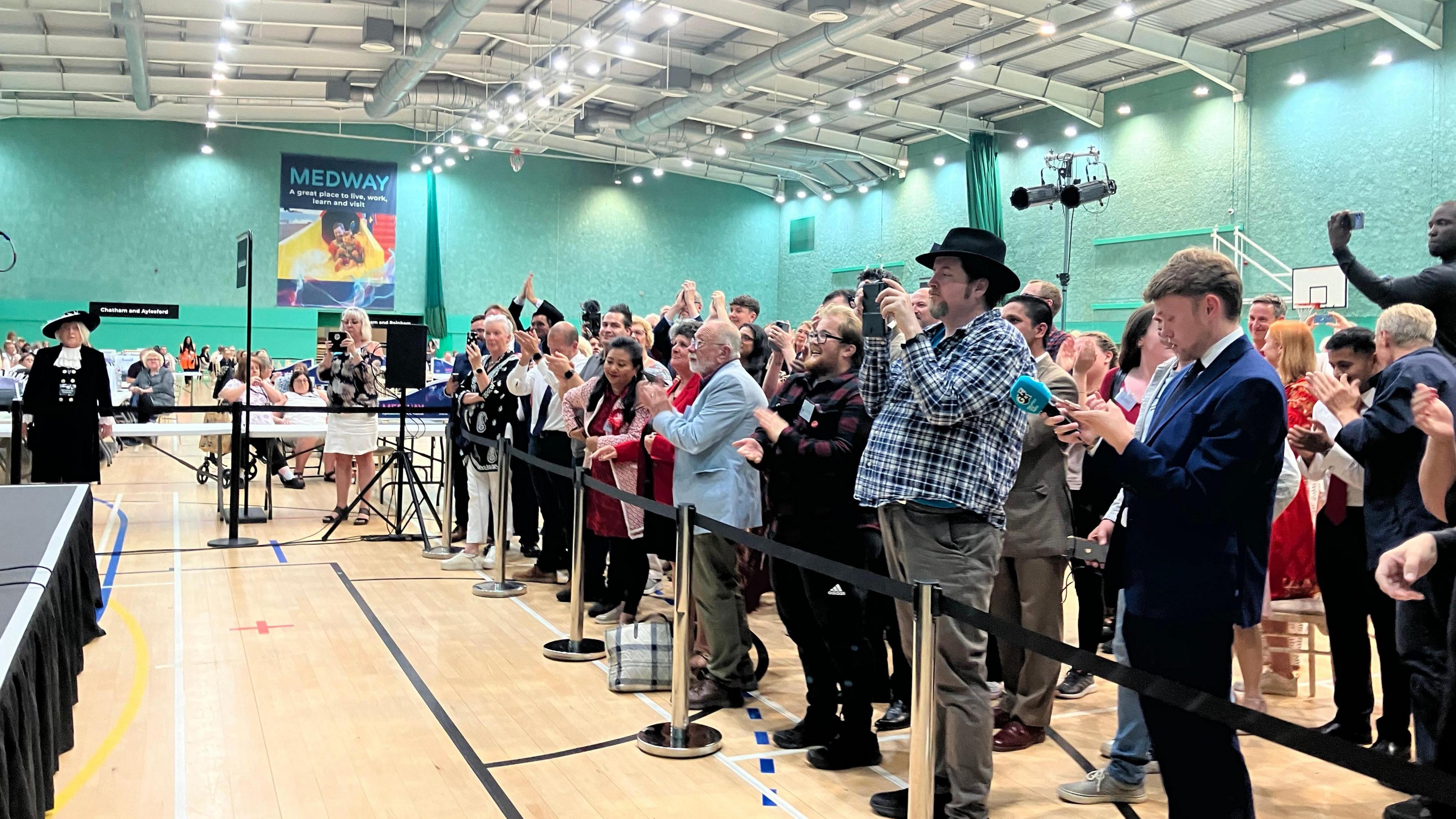
- Published10 September 2024
